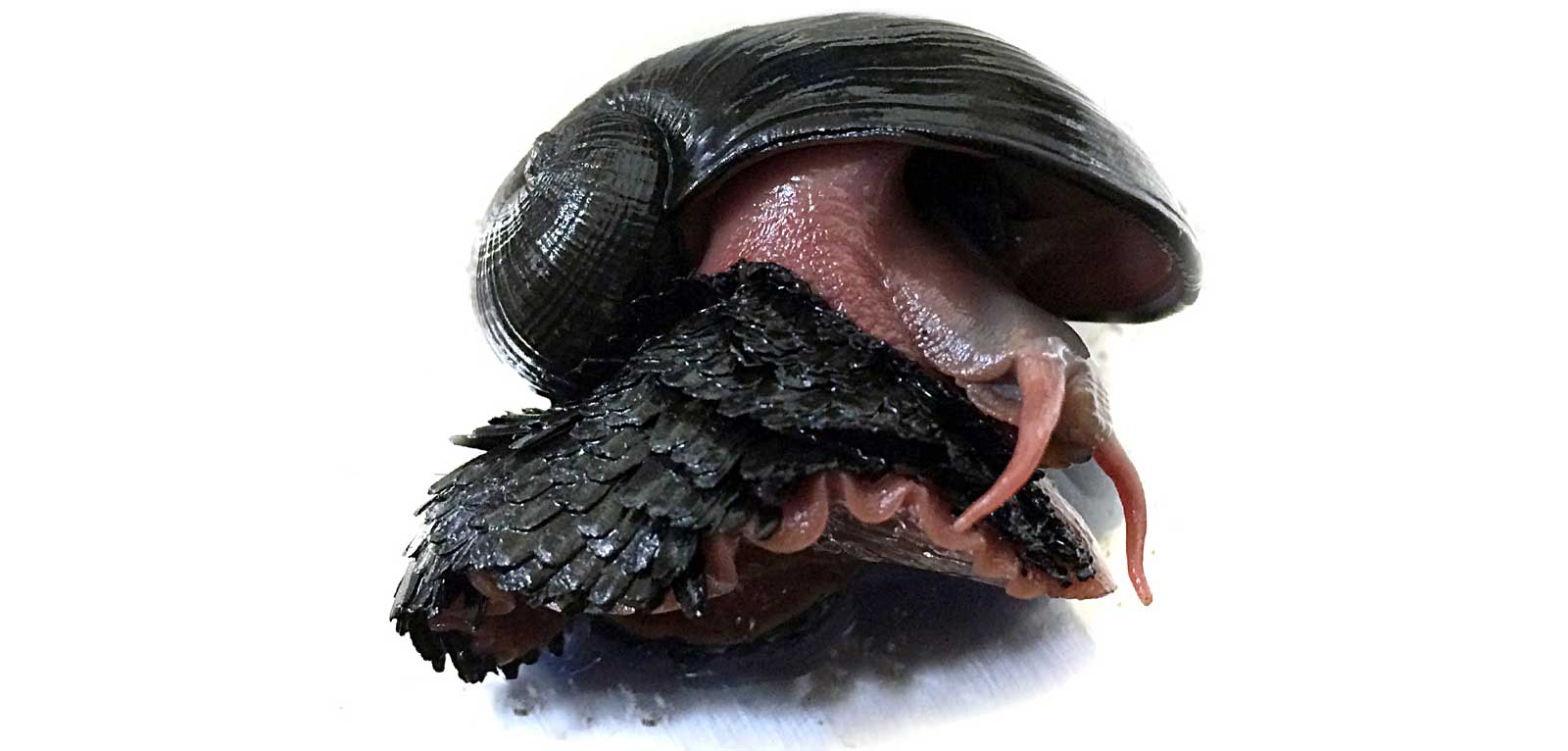Marine researchers discover first ever species endangered from deep sea mining
Scientists from Queen's Marine Lab have discovered that the scaly-foot snail or as it’s otherwise known, the sea pangolin, is the first species at risk of extinction due to potential deep sea mining by humans.

The research has been published in Nature Ecology & Evolution.
Over the past three years, the Queen’s team has been contributing to the first official Red List assessments of animals living in deep sea hydrothermal vents in the Indian Ocean.
Last week, the global The International Union for Conservation of Nature (IUCN) Red List of Threatened and Endangered Species - recognised worldwide as the definitive conservation authority - included the scaly-foot snail, as the first ever species listed as endangered from deep sea mining.
Dr Julia Sigwart, Senior Lecturer in Marine Biology at the School of Biological Sciences / IGFS and Associate Director at Queen’s University Belfast’s Marine Laboratory, said: “The deep sea is home to thousands of species and new species are being discovered all the time.
“These deep sea marine animals like the scaly-foot snail are out of sight, out of mind, but they are still threatened by human activities.”
The deep sea, more than half the world’s surface, contains more nickel, cobalt and rare earth metals than all land reserves combined. Mining corporations argue that deep-sea exploration could help diversify the supply of metals, including cobalt for electric car batteries. The demand for copper, aluminium, cobalt and other metals, to power technology and smartphones, is also soaring.
New technology is currently underway to start mining the seafloor, miles below the surface, targeting the same areas that are home to some of the world's rarest, strangest, and most vulnerable, animals.
Dr Sigwart continued: “It is crucial we are aware of the immediacy and potential impacts of deep-sea mining.
“This Red List designation for these species will enable appropriate international protection for the most vulnerable of creatures.”
The research project involves international colleagues from Japan, Ireland, and the UK and was funded by the Mohamed bin Zayed Species Conservation Fund.
